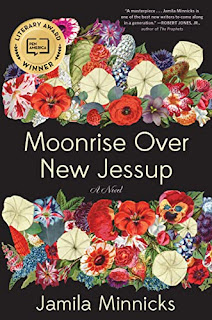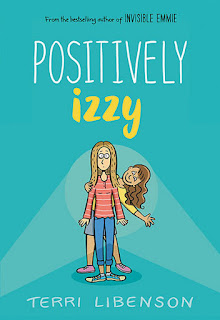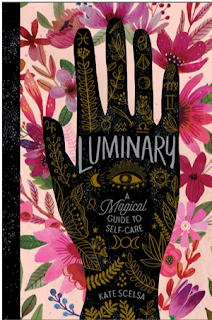“Some Colored towns boasted of riches in their advertisements, offering want upon arrival. Not here, though. Folks coming here knew what they were getting into. Those wanting to work found a community willing to share down to their last. Willing to teach trades, offer a comfortable bed, keep bellies full. I come from a farming family, and we often had folks turning up like you, your kin. They worked, saved up to buy their own land if they wanted, or moved on, but our work was crucial. I like to think my family fed New Jessup so it could grow and grow.
“When the ones who left came back,” she continued, “they were floored by what we had done with the money. They came back, and they’re still coming back two, three generations later. New folks are still coming to stay here, too,” she said with a suggestion in her tone and the slight curve of her smile, though, until then, staying in New Jessup, particularly without Rosie, had never been a thought. My sister had been in Chicago for six years. She wrote of friends, and said she liked her job and that she missed me and wished me and Daddy would come. Those weeks, all I thought about was finding her doorstep. Finding, seeing Rosie was the journey, so I knew she would never just pick and move back to Alabama, to a place where we were both starting over. So stay? Without Rosie? I changed the subject.
Alice has left the life she knew in Rensler, and traveled only partway to her intended destination. Life was just too tempting to pass up in New Jessup—no Colored-only water fountains, or entry doorways. The whole town is Colored, and life feels perfect.
Official synopsis:
It’s 1957, and after leaving the only home she has ever known, Alice Young steps off the bus into the all-Black town of New Jessup, Alabama, where residents have largely rejected integration as the means for Black social advancement. Instead, they seek to maintain, and fortify, the community they cherish on their “side of the woods.” In this place, Alice falls in love with Raymond Campbell, whose clandestine organizing activities challenge New Jessup’s longstanding status quo and could lead to the young couple’s expulsion—or worse—from the home they both hold dear. But as Raymond continues to push alternatives for enhancing New Jessup’s political power, Alice must find a way to balance her undying support for his underground work with her desire to protect New Jessup from the rising pressure of upheaval from inside, and outside, their side of town.
Alice is a woman who means business. While her original goal is to reach her sister, New Jessup goes from a stop on her bus route to Montgomery, to a city she just can’t stand to leave. This all-Black utopia leaves her without an abusive landlord or other white person to lord over her. At first glance, it may be all that’s needed for the town to be perfect for her.
Soon enough, Alice is no longer a newcomer to town. With two jobs and a nice apartment over the dress shop, she soon finds herself courted by the son of one of the founding fathers of the town. She assumes his goals for maintaining the status quo in town will be the same, but he and other young adults in town want to make sure the town is truly theirs.
Life is never as simple as black and white. There lies dissent even in Alice’s perfect town. Is segregation truly the best solution? As with almost everything, there seem to be acceptable degrees of integration to the different residents in and outside of New Jessup
This story was a beautiful coming-of-age story of Alice and those she adopted as her new family in 1957 New Jessup. The book was 4 out of 5 stars, with a few loose ends unanswered, but isn’t that life? This would be enjoyed by those who like family stories, strong female characters, and stories of race relations in the 1950s & 1960s.
{click here to purchase}
Becki Bayley likes sleeping in, long weekends, and setting her own pace. When she’s not reading books for review or working with regulatory complaints, you’ll find her posting snapshots of her life on Instagram as PoshBecki.



